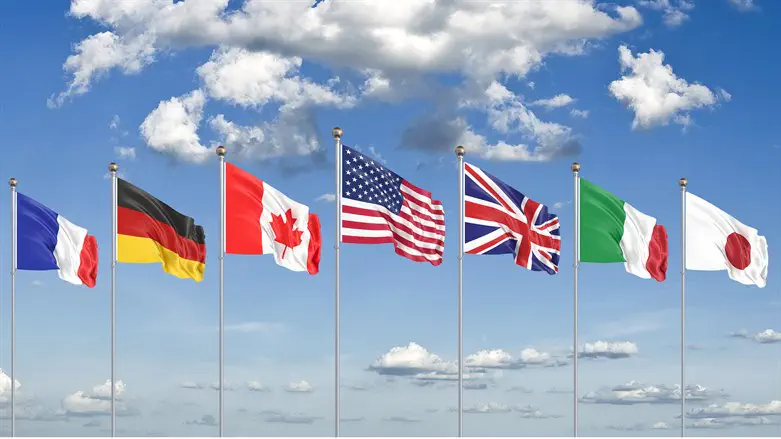
Iran on Sunday called upon the Group of Seven (G7) to distance itself from "destructive policies of the past", the Iranian Foreign Ministry spokesperson Nasser Kanaani said, according to Reuters.
His comment was a response to a G7 statement from Friday condemning Iran's recent nuclear program escalation.
In its statement, the G7 warned Iran against advancing its nuclear enrichment program and said they would be ready to enforce new measures if Tehran were to transfer ballistic missiles to Russia.
"Any attempt to link the war in Ukraine to the bilateral cooperation between Iran and Russia is an act with only biased political goals," Kanaani said on Sunday, adding that some countries are "resorting to false claims to continue sanctions" against Iran.
Iran has been condemned in the wake of the latest report by the International Atomic Energy Agency (IAEA), the UN’s atomic watchdog, which determined that Iran has started up new cascades of advanced centrifuges and plans to install others in the coming weeks after facing criticism over its nuclear program.
That report came a day after the IAEA said that Iran has rapidly installed extra uranium-enriching centrifuges at its Fordow site.
In addition to the G7, France, Germany and Britain on Saturday issued a separate statement condemning Iran’s latest steps to further expand its nuclear program.
The latest IAEA reports followed a resolution passed by the IAEA Board of Governors censuring Iran over its lack of cooperation with the IAEA. Diplomats said Iran’s latest activity was as limited retaliation to the resolution.
The IAEA has long sought answers from Iran on uranium traces which were found at undeclared sites. While the number of sites under investigation has been narrowed to two from three, Iran still has yet to give the IAEA satisfactory answers on how the traces got there.
Kanaani said in Sunday’s remarks that Tehran would continue its "constructive interaction and technical cooperation" with the IAEA, but called its resolution "politically biased."

